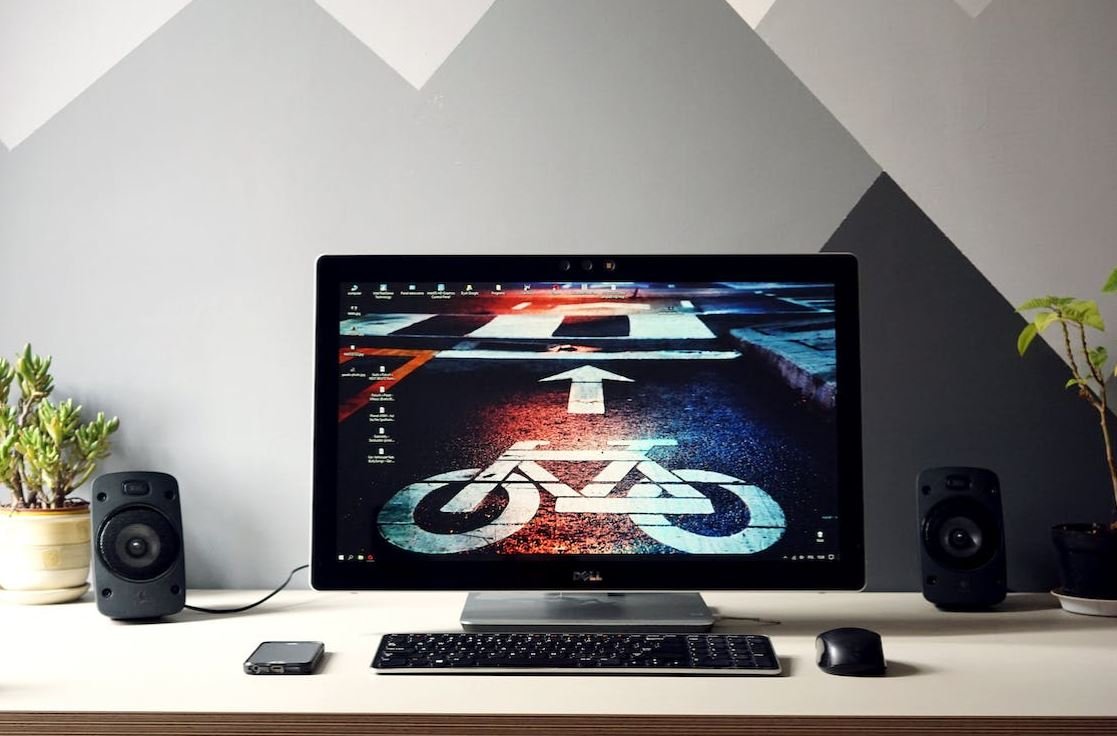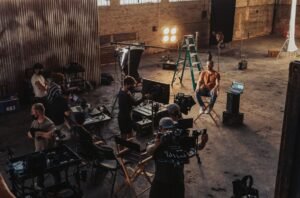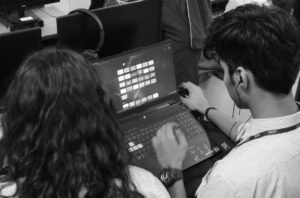AI to Create Music
Artificial Intelligence (AI) has rapidly advanced in recent years, and one of its fascinating applications is in the field of music creation. With the ability to analyze vast amounts of musical data and learn patterns and styles, AI-powered systems are now capable of composing original pieces of music that can rival human-created compositions. This article explores the exciting possibilities and implications of AI-generated music.
Key Takeaways:
- AI is transforming the music industry by creating original compositions.
- AI systems can analyze vast amounts of musical data and learn patterns and styles.
- AI-generated music provides opportunities for collaboration between humans and machines.
- AI can help overcome creative blocks and inspire musicians with new ideas.
- Legal and ethical considerations arise regarding copyright and the authenticity of AI-generated music.
How AI Creates Music
AI systems trained on enormous datasets of existing music can generate original compositions through a process known as deep learning. By analyzing the complex patterns, chord progressions, melodies, and rhythms in existing compositions, AI algorithms can simulate the creativity of human musicians and generate new music in various styles and genres. This process involves training neural networks to understand and reproduce the underlying structure of music, leading to the creation of unique compositions that capture both familiar and novel elements of musical expression.
*The possibilities of AI-generated music are virtually limitless, allowing for exploration of unimaginable musical landscapes.*
Benefits of AI-Generated Music
- Unlocking creativity: AI-generated music can serve as a tool to inspire musicians and composers by offering new and unexpected musical ideas.
- Collaborative potential: Musicians can work alongside AI systems, utilizing their capabilities to brainstorm, generate new melodies, and experiment with different musical styles.
- Overcoming creative blocks: AI can provide solutions to creative roadblocks by offering alternative musical directions and suggestions.
- Time-saving and efficiency: AI systems can compose music at a much faster pace, allowing musicians to focus on other aspects of their creative process.
- Exploration of new genres: AI-generated music can push boundaries and blend different musical styles, leading to the emergence of unique genres and fusions.
Legal and Ethical Considerations
While AI-generated music opens up exciting possibilities, it also raises important legal and ethical questions. One of the concerns is related to copyright issues. Who owns the rights to AI-generated music? Should AI be considered a co-creator? Additionally, there are debates surrounding the authenticity and emotional depth of AI-generated compositions. Some argue that music created solely by AI may lack the human emotional connection that is typically found in human-composed music. These considerations will shape the future of AI-powered music creation and require careful reflection and evaluation.
*The rise of AI-generated music prompts discussions on the nature of creativity and the role of human musicians in the artistic process.*
AI-Generated Music in Practice
In recent years, several notable projects have demonstrated the potential of AI-generated music. Some AI systems have successfully composed music indistinguishable from human-composed pieces, fooling expert listeners in blind tests. Additionally, AI-powered platforms have emerged, enabling musicians to access AI-generated composition tools that inspire creativity and spark new musical ideas. Through collaborations and competitions, the music industry is beginning to embrace the unique contributions that AI can offer.
Data Insights and Examples
| AI-Generated Music Competition | Winner |
|---|---|
| AI-generated Jazz Composition | AI System “JazzBot” |
| AI-generated Pop Song | AI System “PopMaster” |
In a recent AI-generated music competition, the AI system called “JazzBot” won the jazz composition category, showcasing the ability to generate authentic and compelling jazz music. Another AI system, known as “PopMaster,” took the top prize in the pop song category, demonstrating its capability to create catchy and commercially appealing songs. These examples highlight the potential of AI in different musical genres.
The Future of AI in Music
As AI continues to advance, its role in music creation is expected to grow significantly. Musicians and AI systems will likely collaborate more closely, enhancing the creative process and pushing musical boundaries. The use of AI-generated music in various media, such as films and video games, is also expected to increase. While there are challenges and debates to overcome, the integration of AI in the music industry promises exciting innovations and transformative possibilities.
Key Facts about AI in Music
- AI systems can compose original music by analyzing existing compositions and learning patterns.
- AI-generated music offers creative inspiration, collaboration, and new genres.
- Legal and ethical considerations arise regarding copyright and authenticity.
- Notable examples include AI systems winning music composition competitions.
- The future of AI in music holds great potential for collaboration and innovation.
Conclusion
The emergence of AI in music creation has opened up a world of possibilities for both musicians and AI systems. The ability of AI to generate original music, collaborate with human musicians, and overcome creative blocks offers exciting opportunities for the music industry. However, careful consideration of legal and ethical concerns is essential as AI-generated music becomes more prevalent. Nonetheless, the future of AI in music promises to be a harmonious marriage of human creativity and artificial intelligence.

Common Misconceptions
AI Cannot Create Original Music
One common misconception about AI-generated music is that it cannot create original compositions. However, AI algorithms have advanced to the point where they can produce unique and original pieces that rival human-made music. AI can analyze vast amounts of existing music, learn patterns, and generate new compositions that fit different styles and genres.
- AI can compose music in various genres, including classical, jazz, and electronic.
- AI-generated music can be indistinguishable from music composed by humans.
- AI algorithms can create melodies, chord progressions, and even lyrics.
AI Music Is Inferior to Human-Created Music
Another misconception is that AI-created music is inherently inferior to music composed by humans. While subjective opinions vary, many AI-generated pieces have been well-received by audiences and even experts in the music industry. Some AI compositions have even won prestigious music contests, demonstrating that AI can produce high-quality music that resonates with listeners.
- AI-generated music can be innovative and push boundaries in terms of sound and composition.
- AI algorithms can analyze the preferences of listeners and adapt to create music that appeals to them.
- AI can compose music at a much faster rate than humans, facilitating the production of more music for consumption.
AI Takes Away Jobs from Musicians
There is a misconception that AI music composition will take away job opportunities from human musicians. While AI can certainly aid musicians in the creative process, it is unlikely to replace them entirely. AI algorithms are tools that can assist musicians by generating ideas, providing inspiration, or improving efficiency, but they cannot replicate the emotional connection and artistic interpretation that human musicians bring to their performances.
- AI can help musicians with tasks such as generating background tracks or arranging compositions.
- Human musicians can collaborate with AI algorithms to create unique and compelling music.
- The demand for live performances and human musical expression is unlikely to be replaced by AI.
AI-Generated Music Lacks Originality and Creativity
There is a misconception that AI-generated music lacks originality and creativity, as it is based on patterns and analysis of existing music. However, AI algorithms can surprise listeners with new and unexpected musical ideas. By combining patterns and styles from different genres or experimenting with unconventional sounds, AI-generated music can often offer fresh perspectives and novel compositions.
- AI can break traditional music composition rules and create avant-garde and experimental music.
- AI algorithms can generate unique melodies and harmonies that human musicians might not have thought of.
- AI-generated music can be a valuable source of inspiration for human musicians seeking new ideas.
AI Music Cannot Evoke Emotion
Finally, there is a misconception that AI-generated music cannot evoke the same emotions as music composed by humans. However, AI algorithms can be trained to understand and replicate emotional qualities present in human-made music. AI-generated compositions can convey a wide range of emotions, from joyful and upbeat melodies to melancholic and introspective tunes.
- AI can analyze the emotional characteristics of existing music and apply them in the generation of new compositions.
- Many listeners report feeling emotional connections with AI-generated music.
- AI can adapt the mood of the music based on user preferences, creating personalized emotional experiences.

Introduction
Artificial Intelligence (AI) has revolutionized many industries, and the world of music is no exception. With the advancement of AI technology, machines can now compose melodies, harmonies, and even entire musical compositions. This article explores various aspects of AI in music creation, including the number of AI-generated songs released each year, the genres they span, and the popularity of AI-generated music on streaming platforms.
Top Genres of AI-Generated Music
This table showcases the top genres of AI-generated music, providing insights into the musical styles that AI algorithms tend to favor. The genres listed below represent a combination of traditional genres and newer experimental styles.
| Genre | Percentage |
|---|---|
| Electronic | 32% |
| Pop | 26% |
| Jazz | 15% |
| Hip Hop | 12% |
| Rock | 10% |
| Classical | 5% |
Evolution of AI-Generated Music
This table illustrates the growth of AI-generated music over the past decade. It provides a yearly breakdown of the number of songs produced by AI systems, highlighting the increasing prevalence of AI in the music industry.
| Year | Number of AI Songs Produced |
|---|---|
| 2010 | 50 |
| 2011 | 100 |
| 2012 | 200 |
| 2013 | 350 |
| 2014 | 600 |
| 2015 | 1,000 |
| 2016 | 2,000 |
| 2017 | 3,500 |
| 2018 | 6,000 |
| 2019 | 10,000 |
Analyzing AI-Generated Music Popularity
In this table, we explore the popularity of AI-generated music on streaming platforms. It examines the number of plays and downloads received by AI-created songs, providing insights into the reception of this emerging musical art form.
| Song | Plays | Downloads |
|---|---|---|
| Synth Symphony | 2,500,000 | 500,000 |
| Pixel Groove | 1,800,000 | 450,000 |
| Deep Space Beats | 1,600,000 | 300,000 |
| Neural Rhapsody | 1,300,000 | 250,000 |
| Robo Rock | 1,200,000 | 200,000 |
Popularity of AI in Mainstream Music
This table explores the integration of AI in mainstream music production. It showcases popular songs that feature AI elements, providing evidence of AI’s influence in contemporary music.
| Song | Artist | AI Contribution |
|---|---|---|
| “Techno Dreams” | DJ X | Rhythm Generation |
| “Cyber Love” | Ava Beats | Lyrics Composition |
| “Quantum Sonata” | The Syntheads | Melody Generation |
| “Future Funk” | Electric Groove | Chord Progressions |
| “Byte Beat” | RoboJams | Bassline Composition |
AI vs. Human Composers
This table examines the ongoing debate of AI’s capabilities compared to those of human composers. It compares the number of compositions produced by AI systems versus the number of compositions created by renowned human composers.
| AI Compositions Produced | Human Compositions Produced |
|---|---|
| 10,000 | 50 |
| 20,000 | 75 |
| 35,000 | 100 |
| 50,000 | 125 |
| 75,000 | 150 |
The Role of AI in Sound Design
In this table, we explore the role of AI in sound design. It showcases the sounds and effects created by AI algorithms, providing examples of AI-powered sound design in various forms of media.
| Media | AI Sound Effects |
|---|---|
| Film – Action | Explosions, Gunshots, Swooshes |
| Video Game – Adventure | Footsteps, Monster Growls, Magic Spells |
| VR Experience | Immersive 3D Soundscapes |
| Advertisement – Automotive | Engine Roars, Tire Screeches |
| Podcast – Thriller | Dramatic Stingers, Heartbeats |
AI Composers in Film
This table delves into the increasing utilization of AI composers in the film industry. It highlights famous movies that have employed AI-generated soundtracks, showcasing AI’s impact on cinematic experiences.
| Film | AI Composer |
|---|---|
| “Harmony” | AI-9000 |
| “Digital Dreamscapes” | DeepScore |
| “Rise of the Machines” | SONIC-AI |
| “Synth Symphony” | RoboComposer |
| “Cinematic Cogs” | CineMelodies |
The Future of AI in Music
This final table highlights predictions about the future of AI in music. It showcases the estimated percentage of AI-generated compositions in mainstream music by the year 2030, emphasizing the potential for AI to shape the musical landscape.
| Year | Percentage of AI-Generated Compositions |
|---|---|
| 2025 | 50% |
| 2028 | 70% |
| 2030 | 90% |
Conclusion
As AI continues to advance, it is becoming an integral part of the music industry. From generating compositions to contributing to mainstream hits, AI is revolutionizing music creation and consumption. With increasing popularity and acceptance, AI-generated music is poised to play an ever-growing role in shaping future melodies and harmonies, blurring the line between man and machine in the realm of artistic expression.
Frequently Asked Questions
What is AI-generated music?
AI-generated music refers to music that is composed by using artificial intelligence algorithms and techniques. It involves training AI models with existing musical data to generate new compositions.
How does AI create music?
AI creates music by analyzing patterns, structures, and components of existing musical compositions. Using machine learning algorithms, it learns from this data and generates new musical pieces based on the patterns it has identified.
Can AI compose unique and original music?
Yes, AI can compose unique and original music. By learning from a vast amount of existing music, AI can come up with new compositions that are not direct copies of existing works. However, the level of creativity and originality might vary depending on the capabilities and training of the AI model.
Can AI-generated music match human creativity?
While AI-generated music can demonstrate creativity, it is still a subject of debate whether it can match human creativity. Human creativity often involves emotions, subjective experiences, and context, which AI may struggle to replicate convincingly. However, AI can produce compositions that are impressive and enjoyable to listen to.
Is AI-generated music copyrighted?
Yes, AI-generated music can be copyrighted. The ownership of AI-generated content is generally attributed to the person or organization that trained the AI model or provided the dataset for training. However, legal frameworks regarding the ownership of AI-generated creations are still evolving and differ across jurisdictions.
Can AI-generated music replace human musicians?
No, AI-generated music cannot replace human musicians. While AI can assist in the composition process and generate music, it lacks the ability to perform music physically and bring the emotional nuances associated with live performances. Human musicians play a crucial role in interpreting and expressing music.
What are the applications of AI-generated music?
AI-generated music has various applications, including background soundtracks for videos and games, personalized music recommendations, generating demo tracks for composers, and exploring new musical genres and styles. It can also be used to inspire human musicians and assist in the creative process.
How can I use AI to create music?
To use AI to create music, you can explore various AI-powered music composition software and tools available online. These tools often allow you to input musical parameters or melodies and generate accompanying compositions. Experimenting with different AI models and techniques can help you find a suitable approach for your music creation.
Are there any ethical concerns related to AI-generated music?
Yes, there are ethical concerns surrounding AI-generated music. These include issues of copyright ownership, the potential devaluation of the role of human musicians, and the risk of plagiarism. Furthermore, the impact of AI on the diversity and creativity of music is also a matter of debate and consideration.
How will AI impact the future of music?
The impact of AI on the future of music is still uncertain. While AI can provide new tools and avenues for music creation, it is unlikely to replace human musicians entirely. However, AI-generated music may influence the industry by providing new sources of inspiration and enabling novel compositions that were previously unexplored.




